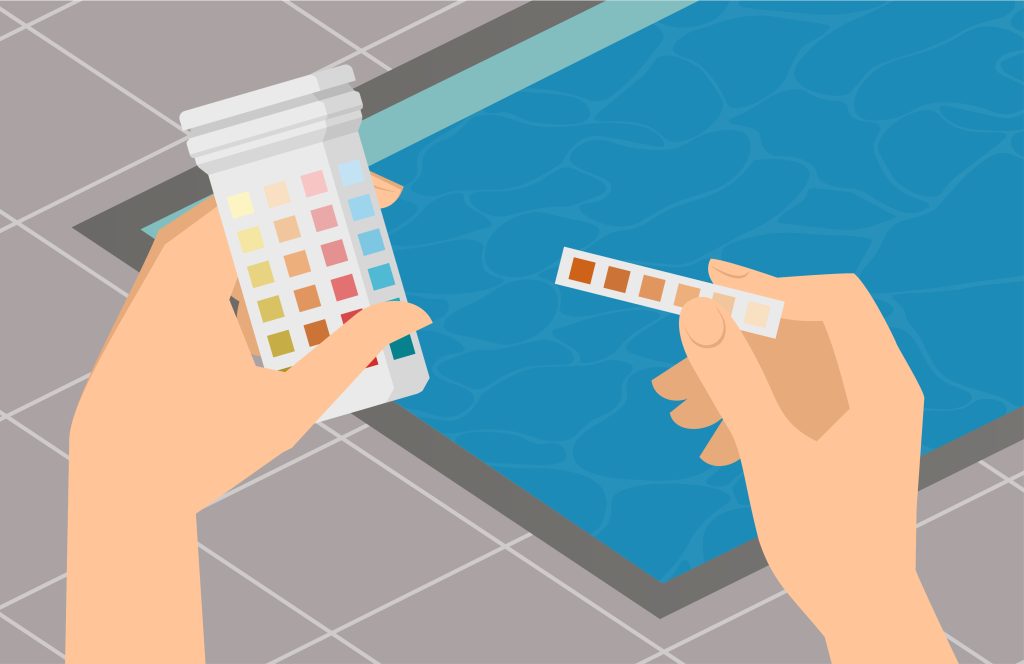Balancing the pH level of your pool water is crucial for ensuring it is safe to swim in. pH that is too high or too low can cause serious problems that affect the pool water and the pool itself. In this article, we explain everything you need to know about pH, including what you can do to keep your pool water safe.

What is pH?
pH is a scale that measures the degree of acidity or alkalinity of water. The scale ranges from 0 to 14, with 7 being neutral. Water that measures lower than 7 on the pH scale will be more acidic than alkaline. Water that measures higher than 7 on the pH scale will be more alkaline than acidic. The acceptable range for pool water is between 7.2-7.8, and the ideal range is 7.4-7.6. Pool water outside of this range can be dangerous, and you should measure the pH of your pool regularly to ensure it remains within this range.
What happens if my pool has a high pH?
Pool water with a high pH level is considered alkaline. Chlorine and other sanitizing chemicals won’t work properly in a high-alkaline pool. This will prevent the pool from being cleaned properly and will allow bacteria to develop.
Pool water with a high pH should be easy to spot. Alkaline water causes the water to be cloudy and causes scaling on the sides of the pool.
What causes high pH?
pH changes will happen naturally. Simply swimming and splashing around in your pool will break up the CO2 and cause the pH to rise. This is why it’s so important to check the pH levels of your pool regularly.
pH may also increase when chemicals are introduced into your pool. Granulated or liquid chlorine, for example, will raise the pH.
A sudden rise in temperature can also cause pH to increase. This could be artificially warmed with a pool heater or naturally warmed by the sun.
What happens if my pool has low pH?
Pool water with a low pH level is considered acidic. Acidic pool water can cause irritation to the skin and eyes and be damaging to pool plaster. It may also prevent chlorine and other chemicals from working effectively.
A low pH will corrode any metal components in the equipment and make the plaster rougher to the touch.
What causes low pH?
Stagnant pool water tends to dip in pH because the carbon dioxide in the air will start to dissolve the water. Acidic cleaners like chlorine gas will also lower the pH levels and make your pool water more acidic.
How do I raise or lower the pH of my pool?
Raising or lowering the pH of your pool is simple. Sodium carbonate will increase the pH. Sodium bicarbonate will slightly increase the pH, it has a greater effect on total Alkalinity. For decreasing the pH an acid-based product is used, muriatic acid or sodium bisulfate.
Aqua Blue Pools is South Carolina’s leading pool builder. In addition to creating stunning pools, we also provide professional maintenance and repairs to ensure your pool remains stunning long into the future. Our team has over 32 years of experience and countless happy customers.
Give us a call today to find out how we can help you.


